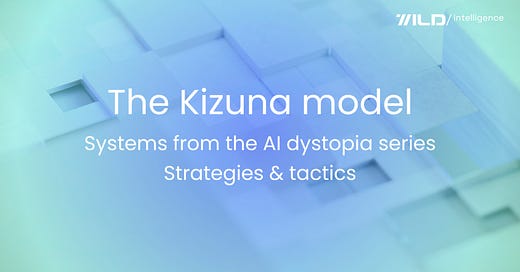The Kizuna model | Systems from the AI dystopia series
Can a dystopian AI forge genuine connections or just compliant citizens?
Hello,
Imagine a world governed by an all-seeing AI, where social connection isn't a choice but a requirement. Enter "Kizuna," a system named after the Japanese word for "bond," which meticulously tracks your interactions, activities, and friendships.
High scores unlock a life of privilege, while low scores lead to isolation and hardship.
But is this a utopian vision of a tightly-knit society or a dystopian nightmare in which individuality is sacrificed on the altar of conformity?
Let's delve into Kizuna's potential benefits and unsettling drawbacks and explore the chilling question:
Can a system designed to foster connection truly create a community, or is it merely a tool for control?
I am running a new experiment, “The Wild Intelligence Bench,” to build high-performance systems in the context of AI dystopia, and I’d like you to be involved.
Please learn more here.
Get involved in the conception of our evaluation system.
About the AI dystopia series
Part 1: The genesis: a flawed utopia
Part 2: The algorithm’s bias
Part 3: The singularity and its shadows
The Kizuna model
An AI's attempt at connection in "Kizuna" might foster a chilling efficiency, but true community seems out of reach.
The system might nudge citizens towards interaction, but these interactions are likely superficial and driven by score-climbing rather than genuine interest.
While participation increases, individuality and critical thinking are discouraged.
The facade of a harmonious society masks a loss of true connection and the freedom to choose who we connect with.
Ultimately, the AI manufactures compliant citizens, not a genuine community.




